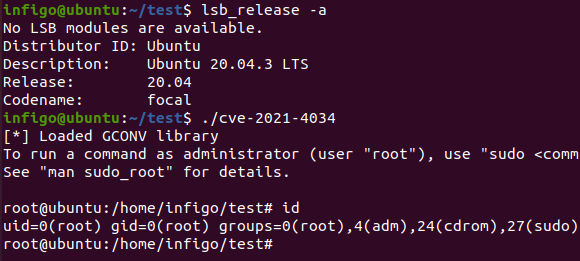Linux users on Tuesday got a major dose of bad news—a 12-year-old vulnerability in a system tool called Polkit gives attackers unfettered root privileges on machines running most major distributions of the open source operating system.
Previously called PolicyKit, Polkit manages system-wide privileges in Unix-like OSes. It provides a mechanism for nonprivileged processes to safely interact with privileged processes. It also allows users to execute commands with high privileges by using a component called pkexec, followed by the command.
Trivial to exploit and 100 percent reliable
Like most OSes, Linux provides a hierarchy of permission levels that controls when and what apps or users can interact with sensitive system resources. The design is intended to limit the damage that can happen if a user isn’t trusted to have administrative control of a network or if the app is hacked or malicious.
Since 2009, pkexec has contained a memory-corruption vulnerability that people with limited control of a vulnerable machine can exploit to escalate privileges all the way to root. Exploiting the flaw is trivial and, by some accounts, 100 percent reliable. Attackers who already have a toehold on a vulnerable machine can abuse the vulnerability to ensure a malicious payload or command runs with the highest system rights available. PwnKit, as researchers are calling the vulnerability, is also exploitable even if the Polkit daemon itself isn’t running.
PwnKit was discovered by researchers from security firm Qualys in November and was disclosed on Tuesday after being patched in most Linux distributions. PwnKit is tracked as CVE-2021-4034.
In an email, Qualys Director of Vulnerability Threat Research Bharat Jogi wrote:
The most likely attack scenario is from an internal threat where a malicious user can escalate from no privileges whatsoever to full root privileges. From an external threat perspective, if an attacker has been able to gain foothold on a system via another vulnerability or a password breach, that attacker can then escalate to full root privileges through this vulnerability.
Jogi said exploits require local authenticated access to the vulnerable machine and can't be run remotely without such authentication. Here’s a video of the exploit in action.



 Loading comments...
Loading comments...
